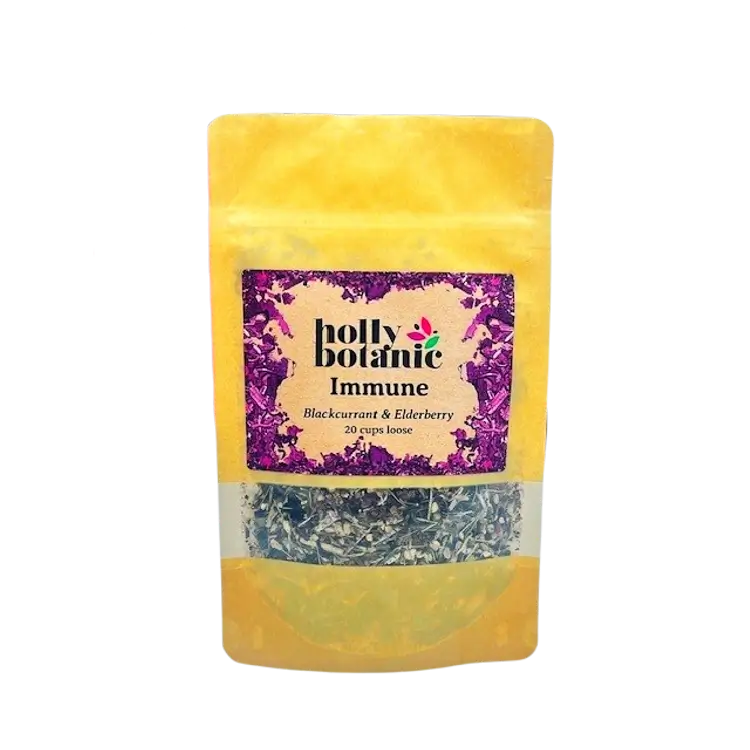This entry was posted on 8th September 2025.
Navigating the world of health supplements can feel like a full-time job. And when it comes to collagen, the hype is everywhere. It’s promoted by celebrities, featured in glossy magazines, and promises everything from youthful skin to pain-free joints.
But for the savvy consumer, especially those of us over 45 who are looking for real results, this hype naturally leads to some very sensible questions. Does it really work, or is it just clever marketing? Is there a difference between the various types? And what should you actually be looking for on the label?
As a nutritional expert, my job is to cut through the noise and give you clear, science-backed answers. So, let’s put the marketing claims aside and have an honest conversation about collagen. This is your expert guide to making an informed choice.
The Big Question: Do Collagen Supplements Really Work?
Let’s tackle the most important question head-on. The short answer is: Yes, high-quality collagen supplements absolutely can work to help delay the ageing process and support joint health, but only if they are the right kind.
The biggest piece of scepticism, and it’s a very logical one, is the “digestion question.” Many people ask, “Won’t my stomach just break down the collagen like any other protein, such as a piece of chicken?”
It’s a brilliant question, and the answer is what makes modern collagen supplements so effective. While your stomach does break down proteins, it doesn’t obliterate them into nothing. It breaks them down into smaller chains of amino acids called peptides.
Scientific research has shown that specific collagen peptides are unique. They are able to survive the digestive process, get absorbed into the bloodstream intact, and travel throughout the body. Once they reach their target—be it the skin or the cartilage in your joints—they perform a dual role:
- They provide the building blocks: They deliver the exact amino acids your body needs to build its own new collagen.
- They act as signal messengers: This is the truly clever part. These peptides signal to your own cells (called fibroblasts in the skin and chondrocytes in cartilage) to start producing more collagen, elastin, and hyaluronic acid.
So, you’re not just “topping up” your collagen levels. You are actively stimulating your body’s own natural production engine.
The Critical Factor: What Does “Hydrolysed Peptides” Actually Mean?
You will see the term “hydrolysed” or “peptides” on any reputable collagen product. This isn’t marketing jargon; it is the single most important factor for effectiveness.
A natural collagen molecule is enormous—a triple-helix structure that is far too large for your body to absorb. “Hydrolysing” is a natural enzyme process that acts like a pair of molecular scissors. It carefully snips these massive molecules down into the small, light, and easily absorbable peptides we just discussed.
Think of it this way: A whole collagen molecule is like a long, tangled rope. Hydrolysing it is like cutting that rope into perfectly sized, usable pieces of string that your body can easily work with.
The bottom line: If a collagen supplement is not hydrolysed into peptides, its ability to be absorbed and used by your body is extremely limited.
The Great Debate: Marine vs. Bovine Collagen – Which is Better?
This is the second most common question. Both marine (from fish) and bovine (from cows) collagen can be effective, but they have key differences that make one more suitable for certain goals.
- Bovine Collagen: Sourced from cows, this type is rich in both Type 1 and Type 3 collagen. Type 3 is important for gut health and organs, making bovine a good choice for general, all-round wellness.
- Marine Collagen: Sourced from fish skin and scales, this type mainly contains Type 1 collagen. This is significant because Type 1 is, by far, the most abundant type of collagen in our own skin, bones, and connective tissues. Furthermore, marine collagen peptides are known to have a smaller particle size, which many studies suggest leads to superior bioavailability and absorption—up to 1.5 times more efficient, according to some research.
The Verdict: While both are good, if your primary goals are related to improving skin elasticity, hydration, and firmness, or supporting your joints and bones—the key concerns of ageing—then Marine Collagen is generally considered the superior choice due to its targeted Type 1 profile and as the research suggests, enhanced bioavailability.
Your Expert Checklist for Choosing a Collagen Supplement
To cut through the confusion, here is a simple checklist. A truly “Gold Standard” collagen supplement, such as Woods Health Marine Collagen Gold Standard, should tick every one of these boxes:
- [✓] It must be Hydrolysed into Peptides: This is non-negotiable for absorption.
- [✓] Choose Marine Collagen for Skin & Joints: For targeted anti-ageing benefits, this is the superior source.
- [✓] Check the Dose: Look for one that provides at least 5,000mg (5g) per day.
- [✓] It Must Contain Vitamin C: Your body cannot produce collagen without it. If it’s not in the formula, you’re not getting the full benefit.
- [✓] Look for a Complete Complex: The best formulas, like the Gold Standard, will also include synergistic nutrients like Hyaluronic Acid (for hydration) and Zinc to support the entire rebuilding process.
By arming yourself with this knowledge, you can move past the marketing hype and make a confident, informed decision. Investing in a high-quality, scientifically formulated collagen complex is one of the most effective ways to nourish your body from the inside out, supporting not just your skin health, but more importantly, how you feel and move.
+ + + + +
It is advisable to consult your GP before taking these supplements, especially if you have an allergy to seafood, a new or existing medical condition, or are taking medication.
+ + + + +
References
- León-López, A., et al. (2019). Hydrolyzed Collagen—Sources and Applications. Molecules, 24(22), 4031. (This review provides an excellent scientific overview of the hydrolysis process and sources). Link: https://www.ncbi.nlm.nih.gov/pmc/articles/PMC6891674/
- Bolke, L., et al. (2019). A Collagen Supplement Improves Skin Hydration, Elasticity, Roughness, and Density: Results of a Randomized, Placebo-Controlled, Blind Study. Nutrients, 11(10), 2494. Link: https://www.ncbi.nlm.nih.gov/pmc/articles/PMC6835901/
- Al-Atif, H. (2022). Collagen Supplements for Aging and Wrinkles: A Paradigm of Dermal Revitalization. Dermatology Practical & Conceptual, 12(1), e2022018. (This paper discusses the mechanism of how peptides stimulate fibroblasts). Link: https://www.ncbi.nlm.nih.gov/pmc/articles/PMC8824545/
- DePhillipo, N. N., et al. (2018). Efficacy of Vitamin C Supplementation on Collagen Synthesis and Oxidative Stress After Musculoskeletal Injuries: A Systematic Review. Orthopaedic Journal of Sports Medicine, 6(10). Link: https://www.ncbi.nlm.nih.gov/pmc/articles/PMC6204628/
Publisher: Source link



